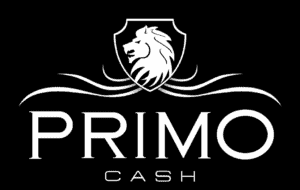Originally published on Entrepreneur.com
Time is money. This common idiom, widely attributed to Benjamin Franklin, is what drives a great deal of innovation in today’s tech-meets-business world. Mr. Franklin could not have anticipated mobile payment apps, but I bet he would recognize what they mean for today’s on-the-go entrepreneur slowed by the invoicing slog.
Invoicing creates bureaucracy and doubt over when and how (and sometimes even if) entrepreneurs will be paid. All this uncertainty causes worry about cash flow. For entrepreneurs providing services like home repair, lawn care or house-cleaning, visiting multiple locations each day, invoicing is often done in the car between jobs or at home after a day filled with work.
In today’s mobile world, your business should instead automatically and instantly receive payment the moment the work is done.
With the recent launch of Apple Pay, as well as the ongoing presence of Google Wallet and PayPal, opportunities are increasing for people to swap their wallets for smartphones. These
technologies are building momentum within the service professional community, allowing no-touch transactions promptly after service delivery. There’s no invoice, no drawn-out payment cycle and no harassing follow-up calls to clients who are late to pay (think Uber).
Not only do new tools exist for entrepreneurs and solopreneurs to streamline their billing, but many consumers are already using the technology. Mobile payment apps might just be the nimble entrepreneur’s new best friend, and one of his or her most valuable tools for building a successful business. Here’s why:
They’re fast
Perform a service, get paid. That’s how mobile payment apps drive business, disrupting traditional invoicing so there’s no cumbersome process or ongoing game of chase-and-remind for clients who are behind. This instantaneous payment frees up entrepreneurs to put their time where it counts – on their actual work. With extra time on their hands, entrepreneurs can finish more projects and win more clients.
They keep your cash flow…well, flowing
Business credit has been tight since 2008, making it hard for entrepreneurs to rely on credit to support their operations. Being paid immediately means more small businesses that rely on their cash flow will survive, grow and thrive, while more accurately monitoring their balance sheet to simplify budgeting. This opens the door for tenacious entrepreneurs ready to make the startup leap.
They’re affordable
Typically, business owners who accept credit and debit card payments have to invest in a merchant processor account. These accounts come with a number of baked-in costs, including gateway fees, statement fees, monthly minimum fees and transaction fees, totaling between $25 to $35 per month depending on who you use. Mobile payment options allow entrepreneurs to process credit and debit card transactions without a merchant processor account.
Mobile payment options free entrepreneurs from long-term contracts and numerous hidden fees, offering clear pricing and fast deposits for a fraction of the cost. These services still come with a small processing fee, but as the space becomes more competitive (as I anticipate it will), those fees will shrink.
They’re convenient for you and your clients
While you’re enjoying a life without invoicing and waiting for payments, your clients will enjoy a life with a lot less check writing, cash withdrawing and reminder pinging. It’s freedom for both parties. At the same time, mobile payment apps can help entrepreneurs protect themselves from the repercussions of cancelations by automating billing on their cancelation policies.
Mobile payment apps make life easier for today’s entrepreneurs but they will also launch more small businesses into existence. Professionals will find the independence, flexibility and support they need to take back their time and turn it into success.
About the Author – Sam Madden is the co-founder of Pocketsuite. PocketSuite is an iPhone app helping self-employed professionals run their business and get paid. Prior to PocketSuite, Sam was the founder of Interactive Buyside, the first open marketing platform for investment professionals. In a past life, Sam was a director & portfolio manager at distressed credit and long/short equity funds (Credit Suisse, Highland Capital). He graduated from Colgate University and is a CFA charterholder.

